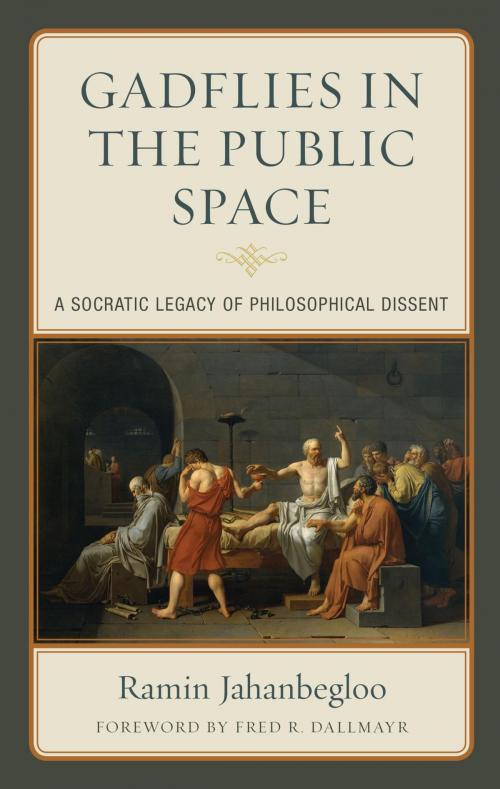Gadflies in the Public Space
A Socratic Legacy of Philosophical Dissent
Nonfiction, Religion & Spirituality, Philosophy, Political, Ethics & Moral Philosophy| Author: | Ramin Jahanbegloo | ISBN: | 9781498541466 |
| Publisher: | Lexington Books | Publication: | December 13, 2016 |
| Imprint: | Lexington Books | Language: | English |
| Author: | Ramin Jahanbegloo |
| ISBN: | 9781498541466 |
| Publisher: | Lexington Books |
| Publication: | December 13, 2016 |
| Imprint: | Lexington Books |
| Language: | English |
The concept of disobedient consciousness and the rebellious Socratic mind that grows out of this book is, above all, a product of Ramin Jahanbegloo’s life meetings with the two apparently contradictory worlds of philosophy and politics. More precisely, it is the result of approaching the public realm in terms of a philosophical quest for truth and justice. This restless quest for truth and justice has a history that continues to bear upon us, however much we choose to ignore it. We can think about the current situation of philosophy by exploring that history. The image of Socrates represents a mid-point between politics and philosophy; the Socratic mind, exemplified by the presence of the public gadfly in history, finds itself at the beginning of a new struggle for truth. The journey to this struggle started with the trial of Socrates, followed by the experiences of Henry David Thoreau, Mahatma Gandhi, Martin Luther King Jr., and Albert Camus. But the forging of the rebellious mind and the sustaining of the civic task of philosophy are goals which impose themselves to each of us whenever we are reminded by the urgency of critical thinking in our own dark times. The future of humankind necessarily requires convictions and commitments, but it also requires Socratic rebels, of the mind and of action, who have the courage to swim against the tide.
Examining dissent in the history of philosophy, this book will appeal to scholars of political theory and political philosophy and to scholars and students of political and intellectual history.
The concept of disobedient consciousness and the rebellious Socratic mind that grows out of this book is, above all, a product of Ramin Jahanbegloo’s life meetings with the two apparently contradictory worlds of philosophy and politics. More precisely, it is the result of approaching the public realm in terms of a philosophical quest for truth and justice. This restless quest for truth and justice has a history that continues to bear upon us, however much we choose to ignore it. We can think about the current situation of philosophy by exploring that history. The image of Socrates represents a mid-point between politics and philosophy; the Socratic mind, exemplified by the presence of the public gadfly in history, finds itself at the beginning of a new struggle for truth. The journey to this struggle started with the trial of Socrates, followed by the experiences of Henry David Thoreau, Mahatma Gandhi, Martin Luther King Jr., and Albert Camus. But the forging of the rebellious mind and the sustaining of the civic task of philosophy are goals which impose themselves to each of us whenever we are reminded by the urgency of critical thinking in our own dark times. The future of humankind necessarily requires convictions and commitments, but it also requires Socratic rebels, of the mind and of action, who have the courage to swim against the tide.
Examining dissent in the history of philosophy, this book will appeal to scholars of political theory and political philosophy and to scholars and students of political and intellectual history.















